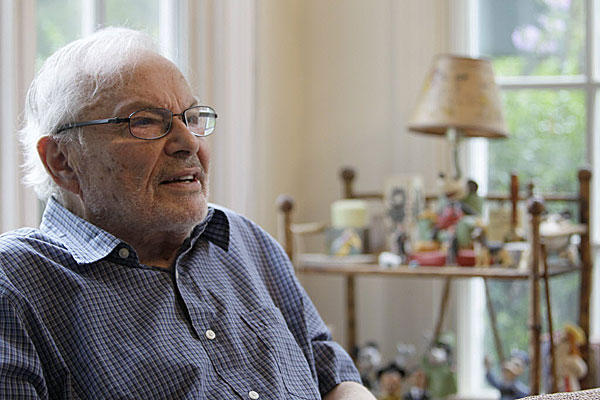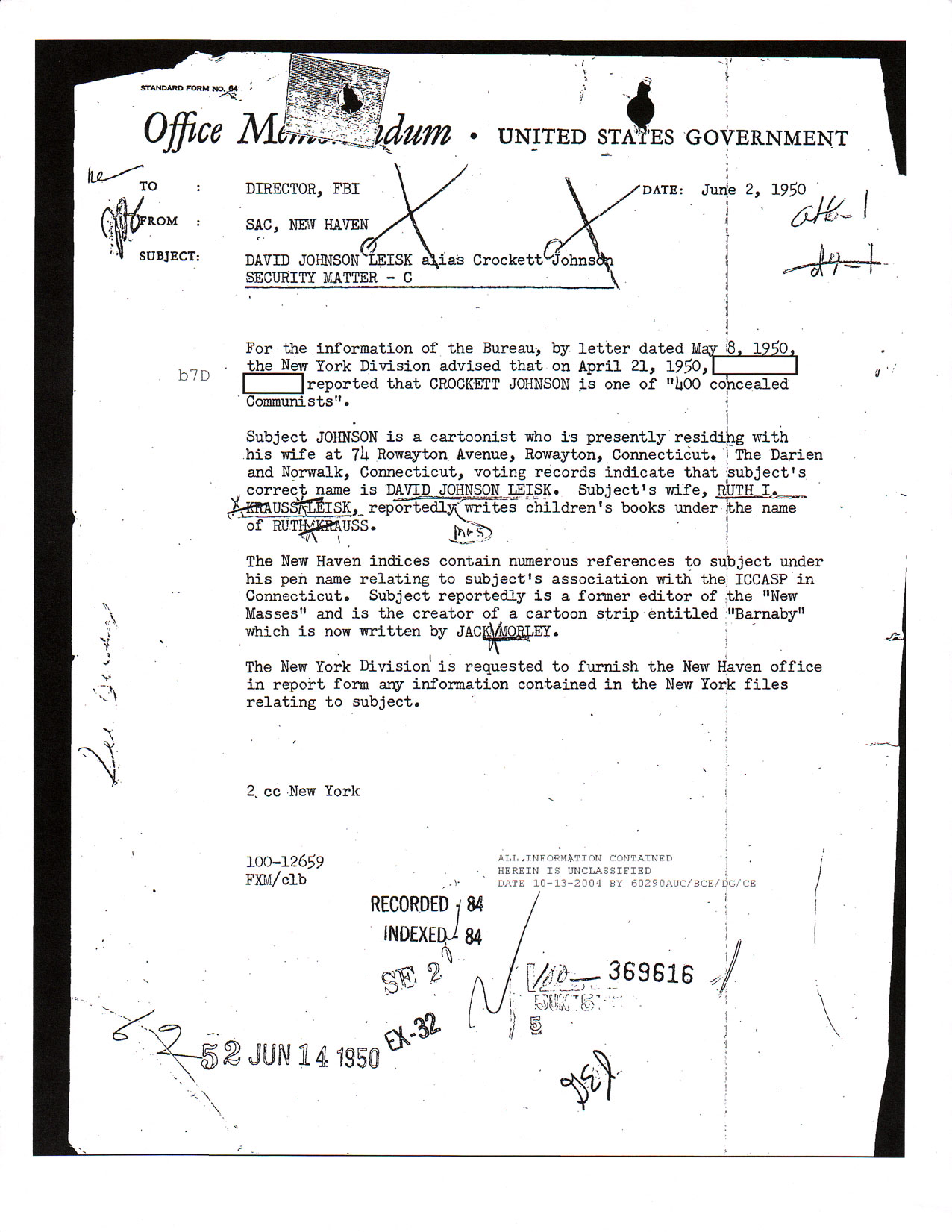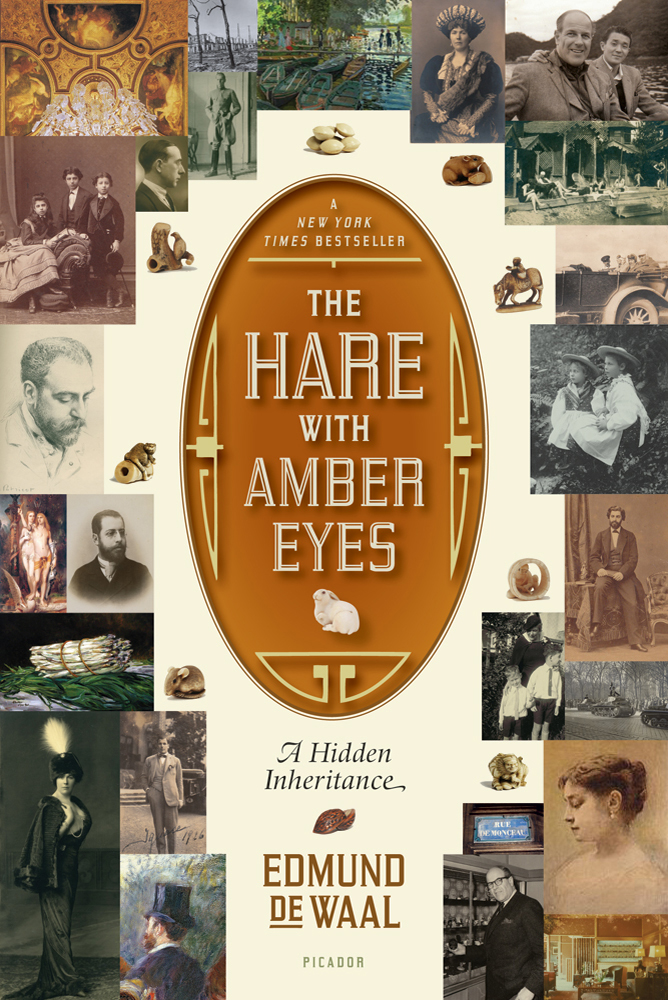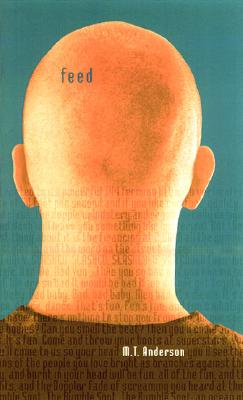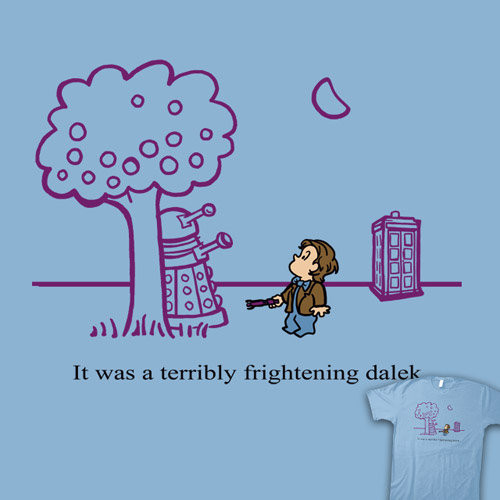The Most Wild Thing of All: Maurice Sendak, 1928-2012
But the wild things cried, “Oh, please don’t go– We’ll eat you up–we love you so!” And Max said, “No!” –Maurice Sendak, Where the Wild Things Are (1963) In June 2001, I went to hear Maurice Sendak speak at Yale University. A couple of years earlier, I’d started working on a biography of Crockett Johnson,

